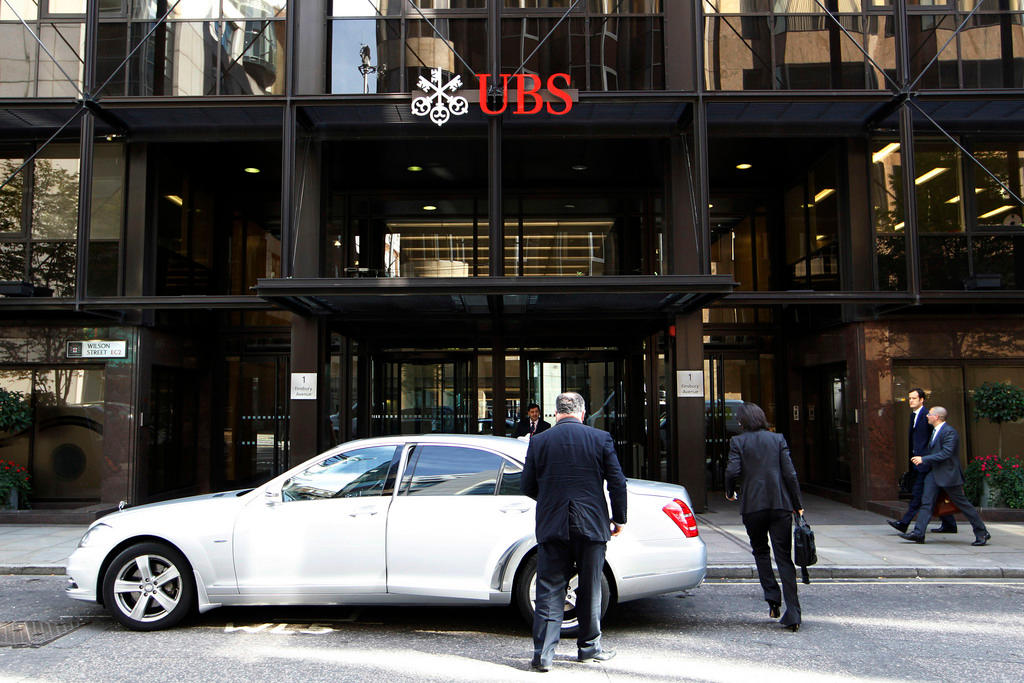Swiss economy braces against Brexit fallout

Following the decision by the British people to leave the European Union, swissinfo.ch examines the potential economic consequences for Switzerland.
Exchange rates
The Swiss National Bank (SNB) has its work cut out keeping the franc’s valuation from going through the ceiling as investors seek a safe haven. The SNB intervened in the foreign exchange markets, printing more francs to buy up other currencies, as the euro and British pound rapidly lost ground.
The central bank’s foreign reserves breached the CHF600 billion mark last month. This was a record for the SNB, which pulled the plug on its euro-franc exchange rate peg in January 2015 precisely to keep foreign currency reserves in check.
The franc had largely been trading between CHF1.09 and CHF1.11 against the euro for the last 12 months. Following the Brexit vote, the key exchange rate had plummeted to CHF1.06 before the SNB intervened to bring it up to CHF1.08.
With most Swiss exports going to the eurozone, keeping the euro-franc rate at an even keel is critical to avoid Swiss goods being priced out of the market. On the other side of the coin, the strong franc has also hit the Swiss domestic tourism trade. The Federal Statistical Office revealed on Friday that foreign guests had spent 3.4% less during their 2015 Swiss holidays than the previous year.

More
Swiss markets tumble on Brexit news
Several Swiss business lobby groups responded to Brexit by calling on the SNB to work overtime to keep the franc as stable as possible. However, most analysts believe the current volatility will die down in the short-term.
British trade
Last year Swiss firms sent around CHF11.7 billion of exports to Britain and received some CHF6.6 billion of imported goods (without jewels or precious metals). That makes Britain the fifth-largest receiver of Swiss goods and the eighth-largest provider of imports to Switzerland.
But Britain still only receives around 6% of all Swiss exports. Furthermore, Credit Suisse economists point out that half of Swiss exports to Britain come from the pharmaceutical and chemicals industries that are not so sensitive to price fluctuations.
Alexis Lautenberg, president of the British-Swiss Chamber of Commerce pointed out to Le Temps newspaper that luxury goods exports are most likely to suffer. The Swiss Watch Federation responded to the Brexit vote by saying it was “bad news” for the industry. The machine building and precision tools lobby group, Swissmem, is also concerned.
The Swiss Business Federation, economiesuisse, is more worried about the possibility of a recession in Britain, which would reduce demand for goods. One other unanswered question is how Switzerland will renegotiate its trading ties with Britain once it is outside of the EU in two years’ time.

More
Swiss weigh up consequences of Brexit vote
EU trade
Including Britain, some 55% of all Swiss exports end up in the European Union, making the European bloc by far the most valuable trading partner for Switzerland.
The biggest Brexit concern for Swiss exporters is the possible impact on the euro as one of its largest individual economies exits the union. The fear is that this will undermine the euro over the mid to long haul, causing it to lose more value against the franc – which is at the same time being inflated due its safe haven status.
Gauging the future economic strength of the EU without Britain is tough to predict. On the one hand, the bloc will still retain the economic might of Germany, but Britain has been one of the leading heavyweights counterbalancing the weaker economies, such as Greece and Portugal.
One fear is that Brexit could cause a domino effect among other EU states. Should any other countries now agitate to leave the EU, it could spell real trouble for the whole EU project.
Speaking just after the Brexit vote, Swiss President Johann Schneider-Ammann acknowledged that the future economic development of Europe was now facing uncertainty. The Swiss economy is bound to be affected by this, he said.
Political fall out
Brexit also increases uncertainty about future political ties between Switzerland and the EU, which have been severely strained since the 2014 Swiss vote to restrict the number of foreign workers.
The Swiss government has to put concrete plans in place to enact this vote by early 2017. But it has been hindered by the EU’s refusal to negotiate until the Brexit situation has been cleared up. That situation will now continue for another two years, drawing EU attention away from clearing up its problems with Switzerland.
This in turn could place a further burden on the Swiss economy. Switzerland prides itself on being an international magnet for multinational firms. The Swiss units of foreign firms contribute half of all corporate taxes to the federal coffers each year.
Many companies in Switzerland were unhappy with the 2014 anti-immigration vote, complaining that it creates uncertainty about their future ability to attract the world’s best talent. Swiss business lobby groups have expressed concerns that Brexit could spike efforts to patch up Swiss-EU relations.

More
Brexit and the Swiss connection – a guide

In compliance with the JTI standards
More: SWI swissinfo.ch certified by the Journalism Trust Initiative












You can find an overview of ongoing debates with our journalists here . Please join us!
If you want to start a conversation about a topic raised in this article or want to report factual errors, email us at english@swissinfo.ch.